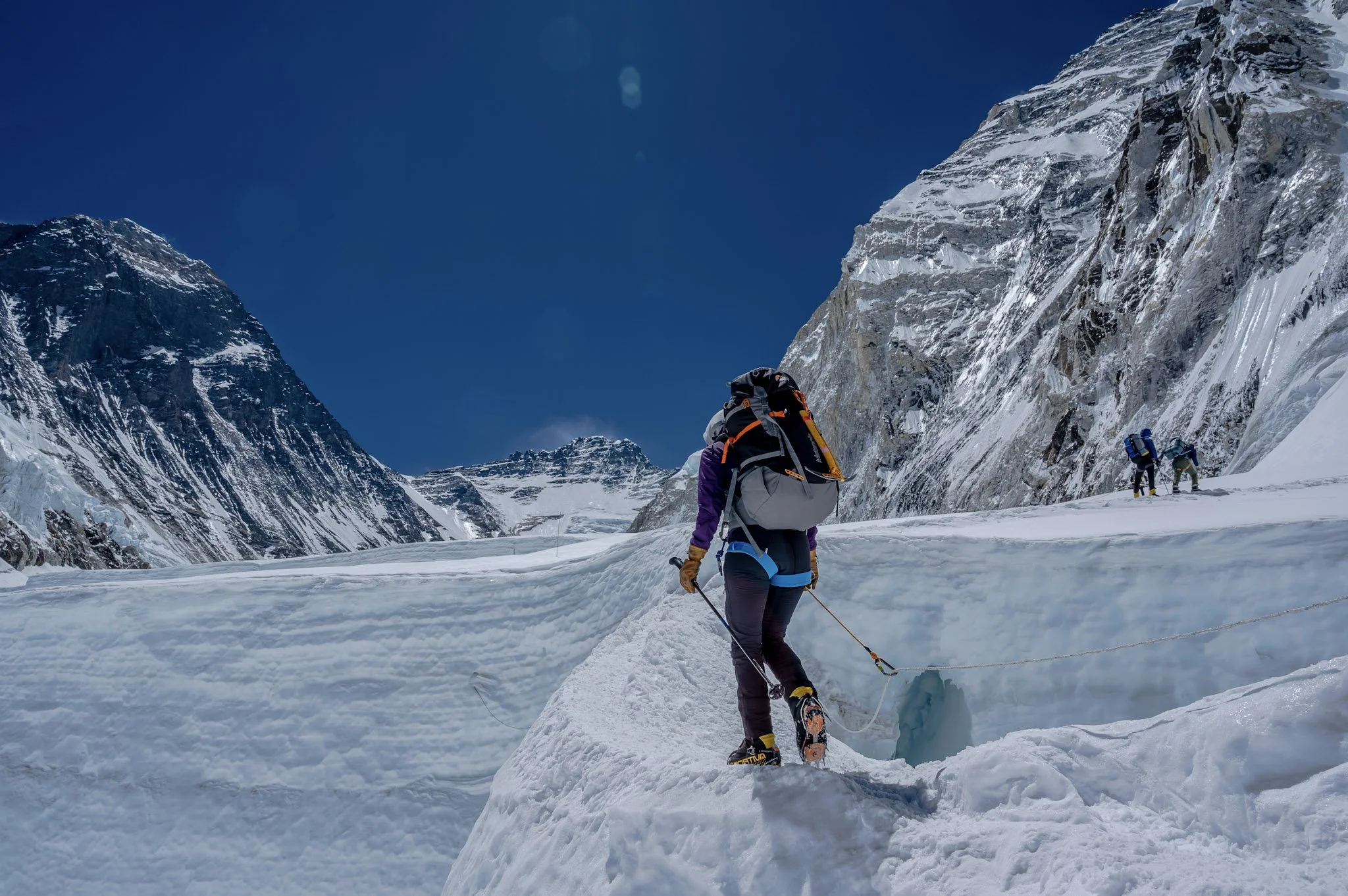
Shaunna Burke’s Press, Publications, and Research
Exploring Resilience Through Exercise
Dr. Burke’s work bridges the gap between physical movement and emotional recovery. Her studies have shaped prehabilitation practices across cancer care, emphasizing exercise as both treatment and transformation.
Deloitte
Patria Investments
Global Excel Management
Amgen
Canadian Olympic Development Association
Jane Goodall Institute
Northwest Hydraulic Consultants
Radicle Group
Shopify
Environment and Climate Change Canada.
Dr. Shaunna Burke’s journey and research helps provide incredible value and insight as an inspirational speaker. She has given keynote presentations at:
Selected Works (Open Access & Peer-Reviewed):
-
Home-based Aerobic and Resistance Exercise for Breast Cancer Patients
October 2024
Feasibility, acceptability, and preliminary effectiveness of implementing a 12-week home-based aerobic and resistance exercise program for breast cancer patients receiving endocrine treatment in Indonesia: A mixed methods study.
-
Preparedness and Peak Performance for Mountaineering Tourists
July 2023
Nepal has the opportunity to expand its mountain-tourism sector, and we offer stakeholders recommendations for developing practical tools and guidance for low-altitude mountaineering tourists based on high-altitude competencies.
-
Physical Activity and Quality of Life in Cancer Survivors: A Meta-Synthesis of Qualitative Research
May 2017
The aim of this meta-synthesis was to identify, appraise, and synthesize qualitative research on cancer survivors’ perspectives of the impact of physical activity on their quality of life.
-
The effects of exercise on pain, fatigue, insomnia, and health perceptions in patients with operable advanced stage rectal cancer prior to surgery
February 2017
Promoting quality of life (QoL) is a key priority in cancer care. We investigated the hypothesis that, in comparison to usual care, exercise post-neoadjuvant chemoradiation therapy/prior to surgical resection will reduce pain, fatigue, and insomnia, and will improve physical and mental health perceptions in patients with locally advanced stage rectal cancer.
-
The effects of neoadjuvant chemoradiotherapy and an in-hospital exercise training programme on physical fitness and quality of life in locally advanced rectal cancer patients (The EMPOWER Trial)
January 2016
The aims of the EMPOWER trial are to assess the effects of neoadjuvant CRT and an in-hospital exercise training programme on physical fitness, health-related quality of life (HRQoL), and physical activity levels, as well as post-operative morbidity and cancer staging.
-
Prehabilitation and Rehabilitation for Patients with Lung Cancer: A Review of Where we are Today
November 2022
The challenge is to provide a package of interventions that is acceptable to patients and fits within the patient pathway so as not to conflict with diagnostic and therapeutic activities. This article reviews where we are today with providing behavioural support to optimise the health of lung cancer patients undergoing treatment.
Press
“A woman with incurable breast cancer is preparing to travel to the Himalayas to take part in the world's highest marathon.
Shaunna Burke, 49, from Addingham, West Yorkshire, had booked her place on the Everest Marathon in 2024, but was forced to delay her plans for a year after she was diagnosed with stage four breast cancer.”
— BBC
“With high altitude, cold temperatures and rough terrain, the Everest Marathon is a gruelling challenge that begins at more than 5000m above sea level. Dr Shaunna Burke celebrated completing the race on 29 May in aid of Macmillan Cancer Support.”
— University of Leeds
“After dedicating her career to researching how exercise can be used in cancer treatment, Dr Burke was diagnosed with incurable, stage four breast cancer in 2024. Creating a personalised diet and exercise plan for herself, she ran to chemotherapy and radiotherapy appointments to maintain her fitness and mental health during cancer treatment.”
— myScience
A citation including some of Burke’s extensive work:
Astari, Y. K., Hutajulu, S. H., Prabandari, Y. S., Bintoro, B. S., Wibowo, R. A., Hardianti, M. S., Hartopo, A. B., Di Sebastiano, K. M., Allsop, M. J., & Burke, S. (2024). Feasibility, acceptability, and preliminary effectiveness of implementing a 12-week home-based aerobic and resistance exercise programme for breast cancer patients receiving endocrine treatment in Indonesia: A mixed methods study. SAGE Open Medicine.
Highlight: Mixed-methods single-arm pre–post trial (N=36) testing a 12-week home program (pedometer walking + resistance bands) delivered to breast cancer patients on endocrine therapy. Feasibility metrics were strong (recruitment ~75%, retention ~89%); physiological fitness improved though QoL/fatigue changes were not significant.
Open access: full text (PubMed Central). SAGE Journals+1
Link: https://pmc.ncbi.nlm.nih.gov/articles/PMC11523172/
Burnett, C., Bestall, J. C., Burke, S., Morgan, E., Murray, R. L., Greenwood-Wilson, S., Williams, G. F., & Franks, K. (2023). Integrating the patient voice in designing and delivering a research study: The Yorkshire Cancer Research funded PREHABS study’s experience. Radiography, 29(3), 653–660.
Highlight: Describes embedding patient partners throughout the PREHABS lung-cancer prehabilitation study—from language choice to recruitment and intervention refinement—improving relevance and acceptability.
Link / record: PubMed / publisher abstract.
https://pubmed.ncbi.nlm.nih.gov/37141686/ (DOI: 10.1016/j.radi.2023.04.006)
McDonald, J. M., Rai, S. M., Burke, S., & Tyshenko, M. G. (2023). Preparedness and Peak Performance for Mountaineering Tourists. Journal of Development Innovations (2023).
Highlight: Reviews preparedness strategies for mountaineering tourists and translates expert climber readiness practices into recommendations for adventure-tour operators and travellers.
Link / host: copy available via KarmaQuest / author upload.
https://karmaquest.org/journal/index.php/journal/article/view/84
Burnett, C., Bestall, J. C., Burke, S., Morgan, E., Murray, R. L., Greenwood-Wilson, S., Williams, G. F., & Franks, K. (2022). Prehabilitation and Rehabilitation for patients with lung cancer: A review of where we are today. Clinical Oncology, 34(11), 724–732.
Highlight: A narrative review summarizing evidence for exercise, nutrition and psychological support across the lung cancer care pathway and outlining gaps and implementation needs for prehabilitation.
Link / record: PubMed / publisher.
https://pubmed.ncbi.nlm.nih.gov/36088168/ (DOI: 10.1016/j.clon.2022.08.028)
Bradshaw, A., Walker, L., Borgström, E., & Burke, S. (2021). Group-based Tai Chi as therapy for alleviating experiences of social death in people with advanced, incurable disease: an ethnographic study. Qualitative Research in Sport, Exercise and Health, 14(1), 84–100.
Highlight: Ethnography showing group Tai Chi can restore agency and social connection for people with advanced illness, reframing movement as relational therapy in palliative contexts.
Bradshaw, A., Phoenix, C., & Burke, S. Living in the mo(ve)ment: Exploring hospice patients’ experiences of participating in Tai Chi. Psychology of Sport and Exercise, 49.
Highlight: Qualitative work on hospice patients’ experiences of mindful movement—showing changes in temporality, presence, and embodied meaning through Tai Chi practice.
Burke, S., Utley, A., Belchamber, C., & McDowall, L. (2020). Physical activity in hospice care: A social ecological perspective to inform policy and practice. Research Quarterly in Exercise and Sport, 28, 1–14.
Highlight: Uses a social-ecological model to identify policy, environment, staff and individual-level levers to embed meaningful movement in hospice settings.
Jackman, P. C., Hawkins, R. M., Burke, S., Swann, C., & Crust, L. (2020). The psychology of mountaineering: a systematic review. International Review of Sport and Exercise Psychology.
Highlight: Systematic review synthesizing motivations, risk perception, coping and group dynamics in mountaineering research; identifies gaps and future directions for longitudinal and intervention studies.
Loughney, L., West, M. A., Moyses, H., Bates, A., Kemp, G. J., Hawkins, L., Varkonyi-Sepp, J., Burke, S., Barben, C., Calverley, P. M., Cox, T., Palmer, D., Mythen, M., Grocott, M. P. W., & Jack, S. The effect of neoadjuvant chemoradiotherapy and an in-hospital exercise training programme on physical fitness and quality of life in locally advanced rectal cancer patients: A randomised controlled trial (The EMPOWER Trial). Annals of Surgery (in press).
Highlight: RCT testing whether adding supervised in-hospital exercise to standard neoadjuvant therapy enhances fitness and quality of life in rectal cancer—expected to provide high-level evidence for preoperative exercise oncology.
Burke, S., Brunet, J., Wurz, A., Butler, C., Utley, A. (2017). Cycling Through Cancer: Exploring Childhood Cancer Survivors’ Experiences of Well- and Ill-Being. Adapted Physical Activity Quarterly, 34, 345–361.
Highlight: Qualitative study exploring how cycling influences identity, agency and well-being in childhood cancer survivors during survivorship.
Brunet, J., Burke, S., Grocott, M. P. W., West, M. A., Jack, S. (2017). The effects of exercise on pain, fatigue, insomnia, and health perceptions in patients with operable advanced stage rectal cancer prior to surgery: A pilot trial. BMC Cancer, 17, 153.
Highlight: Pilot trial showing preoperative exercise may reduce fatigue and improve perceived health in operable rectal cancer patients—supports feasibility of prehabilitation before major surgery.
Open access: BMC (OA).
Link: https://bmccancer.biomedcentral.com/articles/10.1186/s12885-017-3130-y
Burke, S., Wurz, A., Bradshaw, A., Saunders, S., West, M. A., Brunet, J. (2017). Physical activity and quality of life in cancer survivors: A meta-synthesis of qualitative research. Cancers, 9(5).
Highlight: Meta-synthesis that aggregates survivors’ qualitative accounts, mapping how physical activity contributes to identity, meaning and psychosocial recovery after cancer.
Open access: Cancers (OA).
Link: https://www.mdpi.com/2072-6694/9/5/53
Loughney, L., West, M. A., Kemp, G. J., Rossiter, H. B., Burke, S. M., Cox, T., Barben, C. P., Mythen, M. G., Calverley, P., Palmer, D. H., Grocott, M. P. W., & Jack, S. (2016). The EMPOWER Trial: study protocol for a randomised controlled trial. Trials, 17:24.
Highlight: Protocol paper outlining methods, inclusion criteria and outcomes for the EMPOWER RCT testing in-hospital exercise with neoadjuvant chemoradiotherapy. Open access.
Link: https://trialsjournal.biomedcentral.com/articles/10.1186/s13063-015-1149-4
Coriou, A., Korner, A., Burke, S. M., Meterissian, A., & Sabiston, C. M. (2016). Stress and posttraumatic growth among survivors of breast cancer: A test of curvilinear effects. International Journal of Stress Management.
Highlight: Tests whether stress has a curvilinear relationship with posttraumatic growth—adds nuance to stress-growth models in survivorship psychology.
Burke, S. M., Brunet, J., Jack, S., Grocott, M., & West, M. (2015). Exploring the meaning of adhering to a pre-surgical exercise program for patients with advanced rectal cancer: A phenomenological study. Psychology of Sport and Exercise, 16, 88–95.
Highlight: Phenomenological study examining patients’ lived experience of committing to preoperative exercise, highlighting identity, motivation, and meaning.
Burke, S. M., Brunet, J., Sabiston, C. M., Jack, S., Grocott, M., & West, M. (2013). Patients' perceptions of quality of life during active treatment for locally advanced rectal cancer: The importance of pre-operative exercise. Supportive Care in Cancer, 21, 3345–3353.
Highlight: Mixed methods exploration showing preoperative exercise helps patients maintain control and improves perceived QoL during intensive cancer treatment.
Brunet, J., Taran, S., Burke, S. M., & Sabiston, C. M. (2013). Barriers and motivators to maintaining physical activity in women treated for breast cancer. Disability and Rehabilitation, 35, 2038–2045.
Highlight: Qualitative insights into long-term PA maintenance after breast cancer; identifies practical and psychosocial levers to target in interventions.
Brunet, J., Burke, S. M., & Sabiston, C. M. (2013). Benefits of being self-determined in promoting physical activity and affective well-being among women treated for breast cancer. Psycho-Oncology, 22, 2245–2252.
Highlight: Uses self-determination theory to link autonomy and intrinsic motivation to better PA engagement and emotional well-being in survivorship.
Brunet, J., Sabiston, C. M., & Burke, S. M. (2013). Surviving Breast Cancer: Women’s Experiences with their Changed Bodies. Body Image, 10, 344–351.
Highlight: Explores body image transformations after treatment and how movement/PA contributes to rebuilding embodied identity.
Burke, S. M., & Utley, A. (2013). Climbing to Recovery: Investigating physically injured combat veterans’ psychosocial responses to scaling Mt. Kilimanjaro. Disability and Rehabilitation, 35(9), 732–739.
Highlight: Examines how the act of climbing can support psychosocial recovery among injured veterans—narratives of resilience, purpose, and community.
Sabiston, C. M., Brunet, J., & Burke, S. M. (2012). Pain, Movement, and Mind: Does Physical Activity Mediate the Relationship between Pain and Mental Health among Breast Cancer Survivors? Clinical Journal of Pain, 28(6), 489–495.
Highlight: Mediation analysis demonstrating that physical activity buffers the negative psychological consequences of pain in survivorship.
Burke, S. M., Sabiston, C. M., & Vallerand, R. (2012). Passion in Breast Cancer Survivors: Examining Links to Emotional Well-Being. Journal of Health Psychology, 17(8), 1161–1175.
Highlight: Differentiates harmonious versus obsessive passion and links harmonious passion to better emotional outcomes among survivors.
Burke, S. M., Sabiston, C. M. (2012). Fostering growth in the survivorship experience: Investigating breast cancer survivors’ lived experiences scaling Mt. Kilimanjaro from a posttraumatic growth perspective. The Qualitative Report, 17(32), 1–19.
Highlight: Open-access qualitative narrative on how Kilimanjaro climbs catalyze meaning-making and posttraumatic growth among survivors.
Open access: The Qualitative Report.
Burke, S. M., Sabiston, C. M. (2010). The meaning of the mountain: Exploring breast cancer survivors’ lived experiences of subjective well-being during a climb on Mt. Kilimanjaro. Qualitative Research in Sport, Exercise and Health, 2(1), 1–16.
Highlight: Phenomenological analysis of meaning, well-being and identity during a Kilimanjaro ascent.
Burke, S. M., Durand-Bush, N., & Doell, K. (2010). An Ethnographic Study of Motivation and Feel with Novice and Elite Mount Everest Climbers. International Journal of Sport and Exercise Psychology, 8(4), 373–393.
Highlight: Ethnography comparing novice and elite climbers’ motivations and affective experiences, giving insight into how risk, skill and culture shape motivation.
Burke, S. M., & Sparkes, A. C. (2009). Cognitive dissonance and the role of self in high altitude mountaineering: An analysis of six published autobiographies. Life Writing, 6(3), 329–347.
Highlight: Narrative analysis of mountaineering autobiographies to explore cognitive dissonance and identity management in extreme adventure narratives.
Burke, S. M., Sparkes, A. C., & Allen-Collinson, J. (2008). High altitude climbers as ethnomethodologists making sense of cognitive dissonance: Ethnographic insights from an attempt to scale Mt. Everest. The Sport Psychologist, 22(3), 336–355.
Highlight: Uses ethnomethodology to show how climbers construct meaning and resolve paradox in high-altitude settings.
Burke, S. M., & Orlick, T. (2003). Mental strategies of elite high altitude climbers: Overcoming adversity on Mount Everest. Journal of Human Performance in Extreme Environments, 7(2), 15–22.
Highlight: Early work identifying cognitive strategies (imagery, self-talk, goal setting) elite climbers use to cope with extreme adversity.

